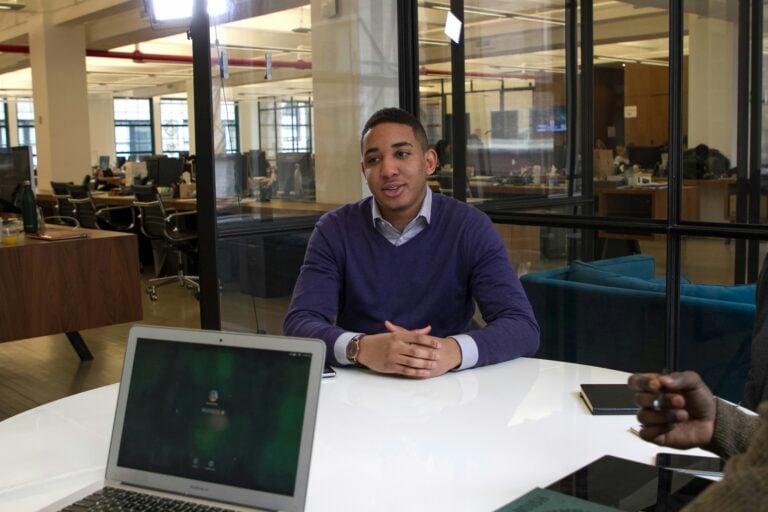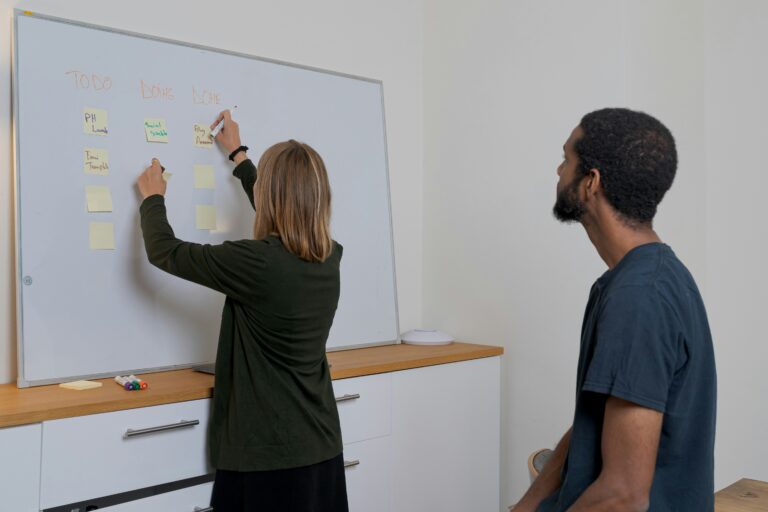Marketing Consultant
22 Jul, 2025
Hiring a senior product manager is one of the most important decisions you’ll make as a hiring manager or business leader. This person will play a critical role in shaping your product vision, influencing cross-functional teams and driving outcomes that directly affect your company’s bottom line.
But all too often, companies spend time sourcing excellent talent, only to fall flat during the interview process, relying on generic questions, disorganised schedules or environments that don’t reflect the seniority of the role.
If you’re bringing in seasoned professionals, your interview process needs to rise to their level. Here are ten essential tips to help you create a thoughtful, strategic and human-centred interview experience for senior product management candidates.
If you are looking to hire a senior product manager, make sure you check out our other useful articles below, or tell our team that you need to hire.
Useful articles and resources:
What are the 3 core jobs of a product manager?
Today’s recruitment market for product, marketing and exec search
75 best product management interview questions
How to transition from CPO to CEO
What London companies look for in product managers
1. Use a strategic, quiet and executive-ready setting
Whether virtual or in person, the environment you create sets the tone. Senior product managers are looking for signs of how your company operates – how you make decisions, prioritise work and treat leadership roles.
Use a clean, professional setting with good lighting and minimal distractions. Make it feel intentional, not rushed or improvised. Your setting should encourage strategic, high-trust conversation and not feel like a coffee break squeezed between meetings.
2. Ensure technical and operational readiness
For virtual interviews, tech glitches are more than just inconvenient, they suggest a lack of preparation and a lack of care. Ensure your video conferencing tools are tested ahead of time. If you’re using whiteboards or collaborative tools (such as Miro or Figma), ensure everyone, especially the candidate, knows how to access and use them.
If a senior PM is left waiting, gets cut off mid-presentation, or sees interviewers scrambling with tech, it reflects poorly on your process and your brand.
3. Set a clear, executive-level interview agenda
Senior candidates deserve transparency and structure. Share the full interview schedule in advance, including:
- Who they’ll be meeting
- What topics each person will cover
- The format (presentation, case study, panel, one-to-one)
At this level, interviews should go beyond assessing contributor-level skills. Build in space to evaluate their approach to leadership, product strategy, cross-functional collaboration and stakeholder influence.
4. Be on time and fully present
This seems basic, but it really matters. Being late or distracted in an interview with a senior PM is more than discourteous; it signals organisational disarray.
Give candidates your full attention. Close Slack. Silence your notifications. Don’t multitask and definitely don’t read emails or check your phone. Show that you respect their time, and that this is a priority, not just another meeting on your calendar.
5. Align and prepare your interview team
Senior-level interviews should not be a free-for-all. Make sure every interviewer knows:
- Their role in the interview
- What they’re evaluating
- What not to repeat from other interviews
Assign themes (for example: product strategy, team leadership, customer focus, metrics) so each conversation uncovers a different perspective. Provide interviewers with the candidate’s CV and any prior notes. This ensures the discussion builds, rather than resets every time.
6. Humanise the interview - don’t treat it like a test
This point can’t be overstated: you are not interviewing a junior PM. You’re speaking with someone who likely has over a decade of experience, who’s led teams, defined strategy and shipped impactful products.
So don’t ask:
❌ “What is Agile?”
❌ “Can you describe a time you worked in a team?”
❌ “What are the stages of the product lifecycle?”
These sorts of generic, surface-level questions are obvious to any experienced professional and they suggest you haven’t thought deeply about the role or the interview.
Instead, treat the interview like the strategic conversation it should be. Ask:
✅ “What trends do you think are disrupting our market?”
✅ “Where would you focus in your first 90 days and why?”
✅ “What value do you think you’d bring to our team that we might be missing?”
Let them talk like the experienced leader they are. Encourage industry-level thinking, challenge their ideas, and most importantly, listen. By treating them as a strategic peer, not a test-taker, you’ll both get more out of the conversation.
7. Showcase your product culture and leadership style
Senior candidates want to understand what your working environment is really like. Not just the role description, but the culture, dynamics, and leadership approach.
Give them a glimpse into how your team operates:
- How are product decisions made?
- What’s the dynamic between product, design, engineering, and leadership?
- What’s your appetite for risk and experimentation?
Be honest about your challenges and your direction. Senior PMs aren’t expecting perfection, they’re looking for where they can make a real difference.
8. Protect the interview from disruption
This should go without saying, but no interruptions. Don’t move meetings last-minute. Don’t check emails mid-conversation. Don’t let a key interviewer “drop off early”.
Protect the candidate’s time and your own. Treat the interview like the important leadership conversation it is.
9. Create space for strategic, two-way dialogue
You’re not just evaluating them, they’re evaluating you. Senior product managers are likely weighing multiple options. Give them space to ask intelligent, high-level questions. Let them explore your strategy, your market position or your product roadmap.
Encourage them to share ideas or challenge assumptions. A good senior PM will offer perspective. Give them room to do that. This is where cultural fit and alignment truly emerge.
10. Follow up promptly and professionally
After investing in a multi-stage process, don’t go silent and on ghosting!! Lack of follow-up is one of the most common reasons candidates withdraw, or simply lose interest.
Even if you haven’t made a decision yet, communicate timelines and next steps clearly. Keep them warm. Let them know you value the time they’ve invested.
Senior candidates will judge your team’s maturity and culture based on how you handle this final stage.
Final thoughts
Hiring a senior product manager isn’t just about qualifications, it’s about leadership, judgement and alignment with your business goals.
And you won’t get a clear picture of any of that if your interview process is rushed, robotic, or misaligned with the seniority of the role.
By creating a more human, respectful and strategic interview experience, you not only attract better candidates, you actually learn more about them, and in return, they learn more about your business.
So next time you sit down with a senior PM candidate, remember: you’re not just conducting an interview, you’re building a relationship that could shape the future of your product and your team.




